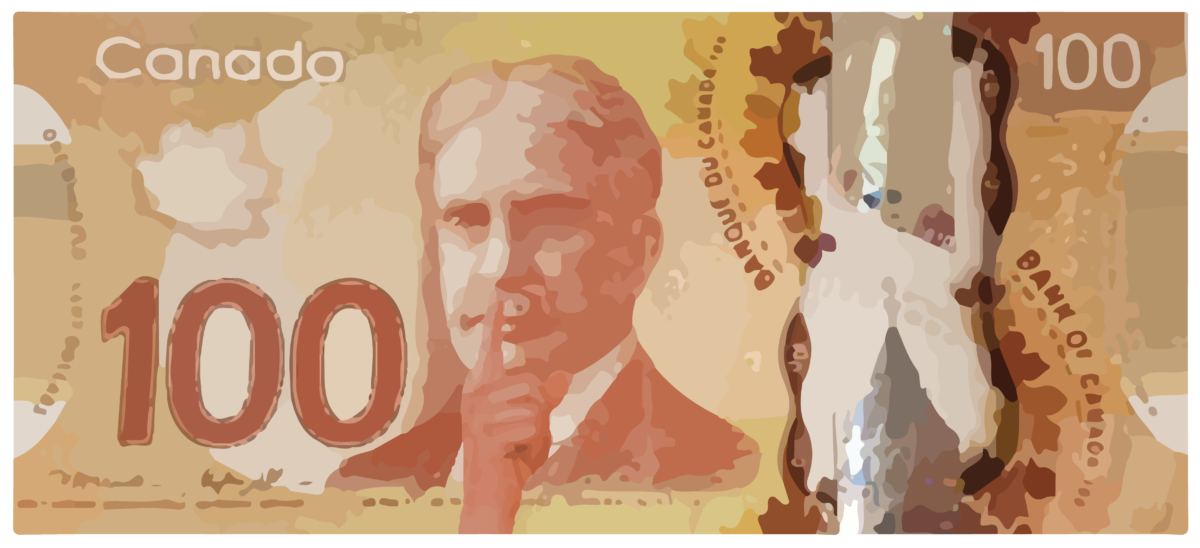
Money laundering has become a hot-button topic in B.C. politics over the last couple of months. While it has long been a topic of contention within British Columbia due to its prevalence in B.C. casinos — the term “Vancouver model” has come to describe money laundering techniques used in casino and real estate scams for this reason — what exactly caused the most recent frantic discussion surrounding its threat to our economy? And where do universities like UVic fit into the mix?
It all began in March with the release of part two of the “Dirty Money” report led by lawyer and former Deputy Commissioner of the RCMP Peter M. German. This report was ordered by B.C. Attorney General David Eby, and focused on activity in the lower mainland.
The report found that money laundering has had a disproportionate effect on the rise in real estate prices and that federal agencies have failed to do their part. These findings caused a clamor for a full public inquiry. In response, the federal government announced last month that they planned to allocate $10 million towards the fight against money laundering taking place across the country.
While the report by German focused on money laundering in real estate, luxury car purchases, and betting activities such as horse racing, there was also mention of the vulnerability of post-secondary institutions to these monetary crimes. But before we turn our attention to how money laundering affects post-secondary institutions such as UVic and how these institutions can prevent or counter it, let’s first examine what money laundering actually is.
Money laundering is described by the Financial Transactions and Reports Analysis Centre of Canada (FINTRAC) as a process in which individuals or organizations disguise the source of illegally obtained capital, money, or other financial assets, often within legitimate institutions or businesses. It is usually carried out in three stages: placement, layering, and integration. Placement is exactly what it sounds like: a criminal or an organization will place their illegally obtained money or assets into the economy. The next stage, layering, is where criminals will cover up the funds they have placed in the economic system. This can take a variety of forms, from multiple transactions to a dizzying array of wire payments spanning across countries and financial institutions. Many of these transactions take only nanoseconds to complete and are notoriously hard and time consuming to track. The third stage, integration, is where the criminal or organization withdraws their seemingly legitimate money from the economic system and either uses it for their own enrichment or to fund further criminal activity.
The report by German and his colleagues estimated that seven billion dollars has been laundered in B.C. in 2018 alone and that much of this laundered money went into the real estate, betting, and luxury vehicle industries. The perpetrators of these illegitimate investments and purchases have inflated the cost of houses in B.C. by between five and twenty per cent, with the worst affected areas being those around Metro Vancouver.
Post secondary institutions in B.C. are also affected by this influx of dirty money. In his report, German expressed that some officials from public post-secondary institutions had raised concerns regarding the payment of multiple semesters in advance by cash, with some students later withdrawing and requesting a refund by cheque or wire payment. This follows on the heels of investigations into money laundering at a Vancouver private college, where a student used his enrollment to cover his criminal activities. This student was connected to El Chapo Guzman’s Mexican cartel. In another case, a student asked to pay a one hundred and fifty dollar charge with nine thousand dollars in cash and then receive it back via cheque minus the amount owed.
Situations like these have raised concerns about the vulnerability of post-secondary institutions to money laundering schemes. To counter this, the Honourable Melanie Mark, B.C.’s Minister for Advanced Education, Skills and Training, asked all public post-secondary institutions, to draft or send the ministry their policies on cash payments. Mark requested institutions respond by the end of June.
While SFU and UBC no longer accept cash payments for tuition, at the time of writing, UVic will still accept tuition payment via cash without limitations. If these recommendations are put into place at UVic, then students will no longer be able to pay tuition through cash but through either electronic means, via debit or online banking, or an official banking institution via cheque, money order or bank draft.
In an official comment by Gayle Gorrill, UVic’s Vice-President of Finance and Operations, less than one percent of UVic students currently pay their tuition in cash.In response to Mark’s requests, the university has “reviewed [their] policies with the [aim] to balanc[e] students while ensuring the university is not a target for money laundering.”
In the review of their current policies, the university has come to the decision not to outright ban cash payments, but instead has decided to limit cash payments to a single semester. According to Gorrill, the university has shared this decision with the provincial government.
All in all, money laundering is a huge issue facing our university, province, and country. While real estate and casinos might seem to be the obvious targets, these recent developments have proven that institutions like UVic are also on the frontline. UVic’s new policies may protect it from money laundering, but a potential for vulnerability still exists through the continued acceptance of cash tuition payments.







